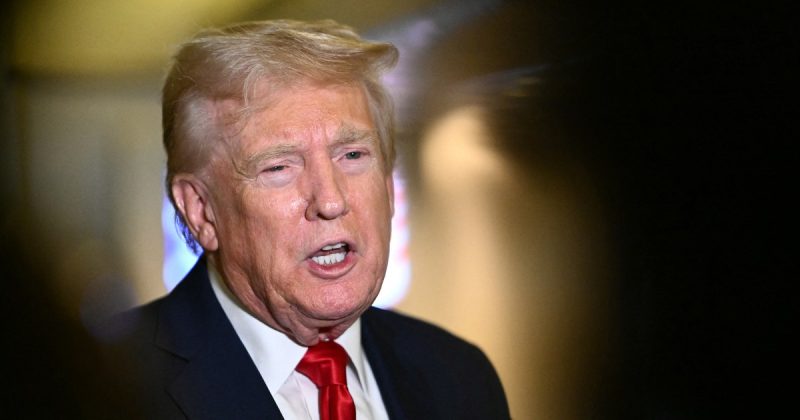
President Donald Trump’s announcement of impending tariffs on imported semiconductor chips sent shockwaves through the tech industry and the global economy. His statement, made Sunday while returning to Washington, revealed that the tariff rate will be announced within the next week, hinting at potential flexibility for certain companies. This move follows Friday’s surprising exemption of smartphones and computers from reciprocal tariffs on China, a reprieve that now appears short-lived.
Trump’s rationale centers on bolstering domestic chip production. He expressed a desire to simplify the process, aiming to stimulate the manufacturing of chips and semiconductors within the United States. However, he remained vague on whether certain products, such as smartphones, might still receive exemptions, only stating a need for “flexibility” in the application of the tariffs.
This announcement comes on the heels of a national security trade probe into the semiconductor sector, further highlighting the administration’s focus on this crucial technology area. The initial exclusion of tech products from the reciprocal tariffs on Friday had raised hopes that the industry might avoid being embroiled in the escalating trade conflict. However, Commerce Secretary Howard Lutnick clarified on Sunday that critical technology products from China, along with semiconductors, will face separate new duties in the coming months.
The market reacted swiftly to the news, with Wall Street experiencing its most significant swings since the 2020 Covid pandemic. The S&P 500 index has already suffered a double-digit decline since Trump’s inauguration. This volatility underscores the uncertainty and disruption caused by the administration’s fluctuating tariff policies.
China, in response to the initial tariff actions, raised its own tariffs on U.S. imports to 125% on Friday. Their Ministry of Commerce issued a statement emphasizing that only Trump can undo the complexities he’s created. This underscores the escalating nature of the trade conflict and the potential for further retaliation.
The conflicting messages and rapid changes in policy have drawn criticism from various quarters. Billionaire investor Bill Ackman, a Trump supporter, urged a three-month pause on the broad tariffs to mitigate disruption. Similarly, market strategist Sven Henrich criticized the administration’s inconsistent messaging, highlighting the difficulties for businesses attempting to plan amidst the uncertainty. Senator Elizabeth Warren condemned the situation as ‘chaos and corruption’.
The situation remains fluid, with the White House Trade Representative stating that there are no immediate plans for Trump to engage in direct talks with Chinese President Xi Jinping on the tariffs. However, hopes remain for reaching agreements with non-Chinese entities. Meanwhile, prominent investors like Ray Dalio have voiced concerns about the potential for a recession or even worse economic outcomes due to the ongoing trade tensions.










